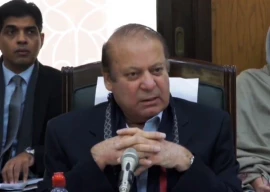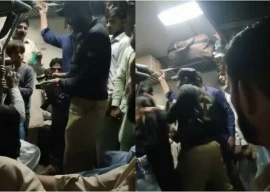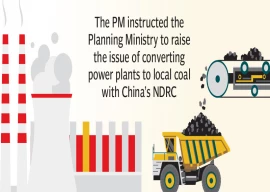
It’s probably fair to say that all entrepreneurial ventures are slightly absurd. Until they succeed, that is, after which they’re automatically rebranded as visionary ideas. But the start-up I helped found with other amateur writers nine years ago defies such easy definition. In fact, I’d say that the team at Desi Writers’ Lounge (DWL) — a platform for new writing from South Asia — positively revels in absurdity, and does not overly concern itself with traditional models of success; and this is why it works.
The way we function at DWL is unusual, to put it mildly. We work for free — in fact, we put in our own money — to help writers other than ourselves. Our decisions usually go pointedly against established industry norms. We prefer developing genuinely respectful relationships rather than seeking strategic “friendships”. We champion a culture of supporting our peers unreservedly, rather than holding back opportunities from others. We resist putting advertisements on our website. And to date, we have not solicited any grants, preferring at times to go into debt rather than to lose our editorial integrity and independence.

Sherry Rehman picks up an edition of Papercuts at the Islamabad Literature Festival in 2014.
In short, we don’t follow a model; we’ve made our own model, and hope others have the courage to follow. To our delight, we’ve found that an approach of being true to your ideals and principles can deliver amazing results. In less than a decade, Desi Writers’ Lounge has expanded from a simple, online peer-review forum to a full-fledged literary start-up with a literary magazine, poetry and fiction contests, writing awards, a blog, merchandise, an international book club, writing workshops, performance events, and an upcoming podcast. What’s more, all of this required much less investment than one might expect.
Although money is naturally a factor in many decisions, the DWL team always prioritises passion, and then thinks about the finances. We have never let funding define who we are or what our activities will be, and the biggest example of that is the Papercuts print project.
Taking our literary magazine, Papercuts, into print was a longstanding dream for the DWL team. Founded as a little quarterly e-zine in early 2007 to showcase work by DWL forum members, Papercuts was revamped in the summer of 2010, introducing thematic, biannual issues. A year later, the magazine began soliciting public submissions. A print issue, however, remained a distant reality.

Actor Salman Shahid buys Papercuts at the Lahore Literary Festival this year.
There were many reasons not to go into print at all. The entire world was shifting from paper to digital. Newsweek famously did away with its print edition in 2012, strengthening the case for online publishing. Then there was the issue of readership and sustainability. An English literary magazine for new writers, published out of Pakistan? How many readers could it have, after all? Definitely not enough to pay for a big print run. There were no economies of scale to be had. Not to mention, the print edition would become one more thing for a thinly stretched, volunteer team to manage.
As is usually the case with DWL, passion won over reason. Even after all the drawbacks had been discussed to death, every person on the team still wanted a print magazine. We also realized that until there was a Papercuts print copy, we would never really be considered a ‘serious’ magazine. This had to be done. It was crazy, and most likely impossible. But then, making things possible was something our team was exceptionally good at.
Thus started our most spectacular journey to date. After considering several funding options, we decided to put up a campaign on Indiegogo, a crowdfunding platform that allows entrepreneurs, creatives, and philanthropists to collect seed money for their projects by appealing to the Internet public for individual donations. Our research showed that in most cases crowdfunding campaigns don’t take off, and many campaigners end up with a fraction of the money, or nothing. Our only hope was to make a convincing campaign and make it go viral.

Papercuts Editor Afia Aslam, poet Ilona Yusuf, and actor Adnan Jaffar at the Goa Arts and Literary Festival in December 2013. PHOTOS COURTESY: DWL
The Papercuts Indiegogo campaign turned out to be one of the most challenging projects in DWL’s history. We learnt how to put a campaign video together, how to make the right pitch to an online audience, how to budget intelligently for a big project, how to market the campaign, and — most importantly — how to ask for money. Failure was not — could not be — an option. Team members were cajoled, cheered on, shamed, scolded — anything that worked in the moment to motivate them. We all had to discard any notion of an ego during those days. All of us were forced to re-evaluate our personal relationships: people we thought we could depend on didn’t step forward to help, while others we barely knew exhibited extraordinary generosity. For example, a group of us went to the Goa Arts and Literary Festival to represent DWL, and gave a presentation there on our on-going campaign, sharing crowdfunding lessons for indie publications. At the end of the presentation, to our utter astonishment, members from the audience came forward to contribute hundreds of dollars to the campaign. I still get goosebumps when reliving the highs and lows of that month.
Our goal was $12,000, enough for two print issues. On 20th December, when the 43-day Papercuts print campaign on Indiegogo wrapped up, our total funding stood at $13,050, the top contribution a whopping $3,000 from Japan.

Designing and printing the magazine was a whole new learning process. Waqas, our Director, recalls racing between the printer’s office in Rawalpindi and our Creative Lead Osman’s apartment in Islamabad, trying to fix colours, photos, layouts, etc. When the file finally left his hands for the last time, he stood paralyzed for a moment (surely there was still something else to be done?). That’s when the printing press manager told him to please take a sleeping pill and go to bed.
The second issue of Papercuts was a much better-looking product, and we finally felt we had reached the production level that we wanted for the magazine. Osman was in Karachi at the time, shooting for a major television serial. He remembers receiving a call on set that the cover image had to be adjusted. Unfortunately, his laptop was out of battery and there was no electrical outlet to be found. Meanwhile, I was sitting at the printer’s, waiting for him to send the file. Osman threw what he calls “a mini-tantrum”, and started storming into various rooms, looking for an outlet, while the rest of the cast and crew looked on, dumbstruck. At some point, he overheard someone in another room saying, “God, this guy is such a drama.”
But that’s what starting something new is about. It’s about the drama, the experience, the risk, the learning, the laughter, and the frustration. It’s about finding co-workers who would put their reputations on the line and storm from room to room, looking for an electric outlet. It’s about caring enough to put oneself out there, shamelessly and repeatedly. If there’s anything DWL has taught us over the years, it’s that few things in life genuinely deserve your all. For us, this is one of those things. And it’s because we give it our all that it works. That’s the first and only rule for a start-up, I think: give it everything you’ve got. If you can’t, then wait until you can.
Make it work
1. Keep evolving: There is a real chance that you may outgrow the project with time, if you don’t allow it to grow with you. Let your project breathe. Keep your vision vast, and your goals short-term. Don’t be afraid to let the project take on new directions. Keep reinventing.
2. Find your people: You are not as invincible (or even perhaps as competent) as you think. Get others on board. Find people you can trust to take your work as seriously as you do. Then don’t let go.
3. Keep your people happy: If there is no serious money to be had, and you’re not on speed dial with the president of the country, then you better start thinking hard about what incentives you can offer your team (and yourself).
4. Know what “success” means to you: Have a clear feel for what counts as collective achievement, and what counts as failure. Don’t look for instant gratification, and never panic. The high of achieving something that seemed impossible will outweigh the panic/dejection before you made it possible. Make your team believe this.
5. Get some financing: You may not be earning from your passion project, but it helps to have costs covered. Apply for a grant, make some merchandise, convince others to donate their services to you. But always keep it classy. Don’t let the money demean you or your project.
Afia Aslam is an editor, freelance writer, and co-founder of Desi Writers' Lounge. DWL tweets @desi_writers and can be found on Instagram @dwlpapercuts
Published in The Express Tribune, Sunday Magazine, September 27th, 2015.












































COMMENTS
Comments are moderated and generally will be posted if they are on-topic and not abusive.
For more information, please see our Comments FAQ